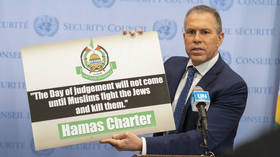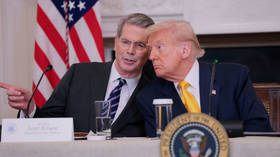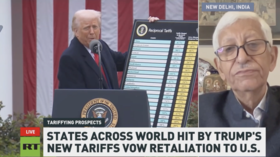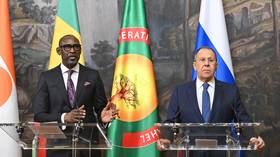Russia and China urge renewal of Middle East peace talks
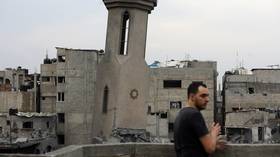
Russia and China argued for a genuine peace process in the Middle East at a Sunday emergency session of the UN Security Council meant to discuss the recent attacks by the Palestinian militant group Hamas on Israel, the worst the country has seen in decades.
“My message is: It’s important to stop the fighting immediately, to go to a ceasefire and to meaningful negotiations, which were stalled for decades,” Vassily Nebenzia, the Russian permanent representative to the international body, told journalists.
Nebenzia stressed that Russia condemned all attacks on civilians. Chinese Ambassador Zhang Jun voiced a similar position ahead of the meeting, urging the world “to come back to the two-state solution.”
The Security Council, however, did not produce a joint statement on the matter due to disagreements among members.
For its part, the United States demanded all 15 members condemn “these heinous terrorist attacks committed by Hamas.” After the session, US Deputy Ambassador Robert Wood said that “a good number of countries” heeded Washington’s call, but not all of them, adding that reporters could guess who he was referring to.
Moscow previously described the crisis as “an extremely dangerous manifestation of the vicious circle of violence directly stemming from the non-implementation of the relevant resolutions” by the UN Security Council. It said that Western nations have effectively blocked the work of the Quartet on the Middle East, an international group tasked with mediating the Israeli-Palestinian peace process that includes Russia, the US, the EU, and the UN.
Israel’s permanent UN representative, Gilad Erdan, declared that his nation’s goal was to “obliterate” Hamas’ “terrorist infrastructure.” He called members of the militant group “savages” and “animal-like terrorists,” accusing them of “blatant documented war crimes” during the raid on southern Israel.
In addition to targeting Israeli military bases and personnel, Hamas fighters have attacked civilians and captured hostages, according to footage of their attacks circulating online. Israel has declared war on the organization and launched retaliatory strikes on Gaza.
Meanwhile, Riyad Mansour, the Palestinian ambassador, cited Israel’s blockade of Gaza and regular attacks inside the densely populated area as fuelling the violence. He urged Israel not to “double down on its terrible choices.”
In recent years, Israel has been under the leadership of a series of right-wing governments pursuing conciliatory and escalatory policies. The nation successfully revitalized its diplomatic relations with several Arab countries and had plans to establish ties with Saudi Arabia through a trilateral agreement involving the US. However, these diplomatic achievements have been accompanied by increasing criticism from prominent human rights organizations, including B’Tselem and Human Rights Watch, which argue that Israel’s treatment of Palestinians is a form of apartheid.
For their part, Arab nations have issued statements regarding the ongoing escalation, suggesting that Israel bears at least partial responsibility for the situation and calling for a revival of the peace process.
